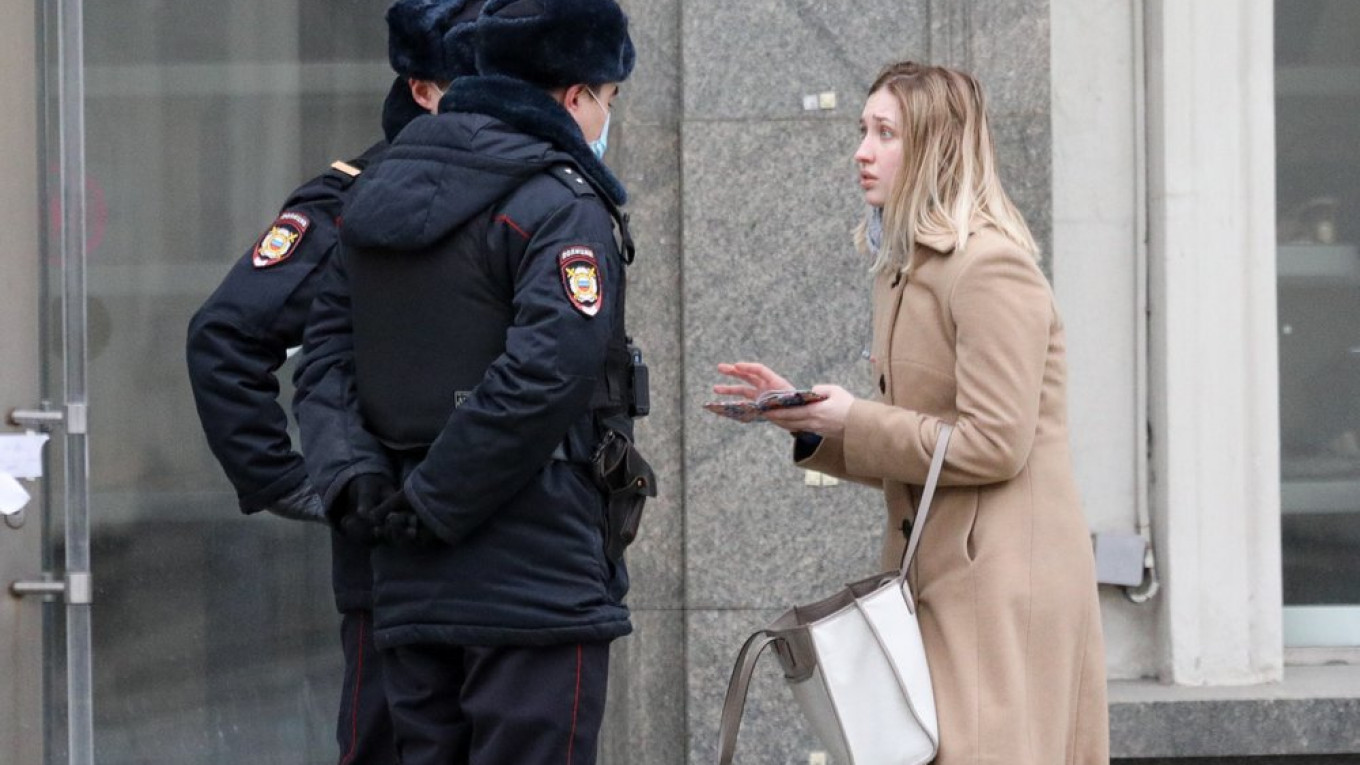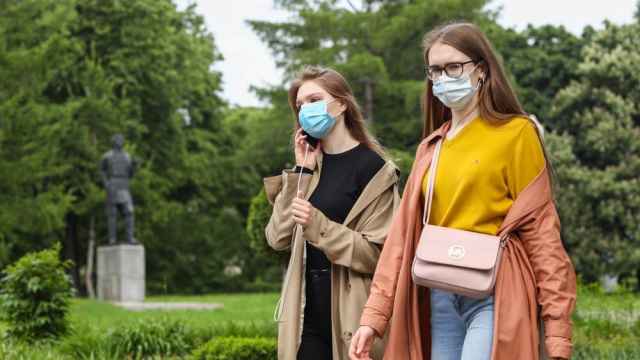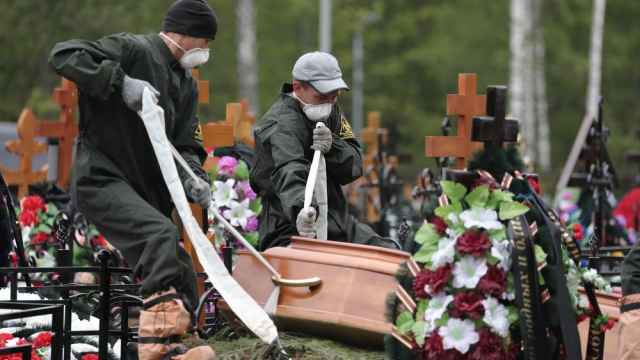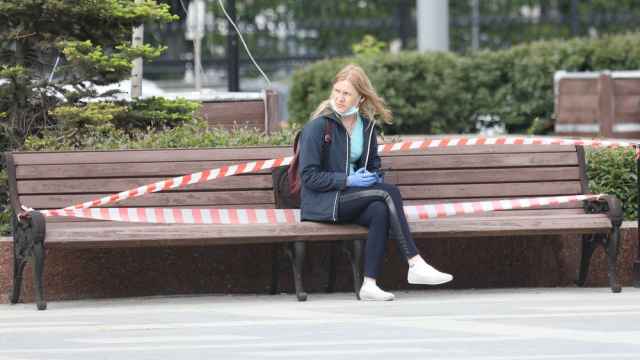Authorities in Moscow have begun issuing digital QR code passes to employees of city-funded media and large companies, as well as volunteers, despite pledges not to enforce the coronavirus lockdown with the technology, BBC Russia reported Thursday.
Mayor Sergei Sobyanin ruled out using QR codes to police people’s movements during the monthlong lockdown as long as Muscovite continue to follow self-isolation orders. BBC Russia said it obtained several passes with scannable QR codes designating holders as people allowed to move around the city.
“This employee is working during the period of special measures to combat the coronavirus epidemic,” the scanned code reportedly says. An unnamed city-funded media employee told BBC Russia that the designation appeared on the outlet’s website sometime last week.
Identical wording appears in IDs handed out to state-funded media employees, BBC Russia said, citing a copy of an ID belonging to an employee of the state-run NTV news channel it said it obtained.
Volunteers with an organization backed by President Vladimir Putin’s All-Russia People’s Front (ONF) political movement are also handed QR codes, BBC Russia reported, citing a pass owned by a British entrepreneur. Its holder’s profile, however, notes that the pass is “invalid.”
Similar passes allowing movement — albeit without QR codes — have been issued to employees of a company owned by one of Russia’s 10 richest businessmen, BBC Russia reported. It said it withheld the businessman and the company’s name to protect its source’s anonymity.
The Moscow Mayor’s Office denied that its IT department is issuing QR codes to media workers and volunteers, Interfax quoted the office as saying after the report’s publication.
Putin enacted punishments including stiff fines and prison terms of up to seven years for violating quarantine rules. This week, Moscow police have been granted the authority to fine quarantine violators between 4,000 rubles and 5,000 rubles ($50-$60).
The Open Media news website reported this week that a number of journalists at state-funded media outlets, doctors and municipal employees have been issued special passes to move around Moscow.
Russia has reported more than 10,000 coronavirus infections and 76 deaths after the biggest one-day surge in cases Thursday. Moscow, a city of more than 12 million people, accounts for two-thirds of nationwide Covid-19 cases and half of all deaths.
A Message from The Moscow Times:
Dear readers,
We are facing unprecedented challenges. Russia's Prosecutor General's Office has designated The Moscow Times as an "undesirable" organization, criminalizing our work and putting our staff at risk of prosecution. This follows our earlier unjust labeling as a "foreign agent."
These actions are direct attempts to silence independent journalism in Russia. The authorities claim our work "discredits the decisions of the Russian leadership." We see things differently: we strive to provide accurate, unbiased reporting on Russia.
We, the journalists of The Moscow Times, refuse to be silenced. But to continue our work, we need your help.
Your support, no matter how small, makes a world of difference. If you can, please support us monthly starting from just $2. It's quick to set up, and every contribution makes a significant impact.
By supporting The Moscow Times, you're defending open, independent journalism in the face of repression. Thank you for standing with us.
Remind me later.






